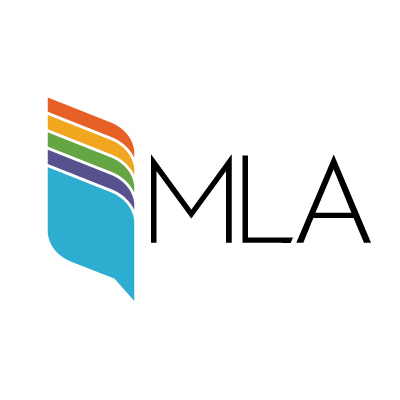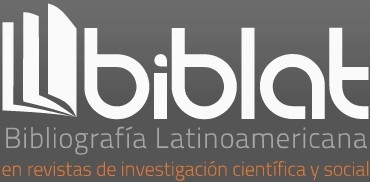Ways of Life, Body Passions and Anthropic Zones in Cinema. Yaaba, from Ouedraogo. Tribute to Desiderio Blanco
DOI:
https://doi.org/10.35494/topsem.2024.2.52.866Keywords:
Keywords: bodily practice, passion, form of living, territorial antropic area, semiotic world., bodily practice, passion, form of living, territorial antropic area, semiotic wordAbstract
In tribute to Desiderio Blanco, a great cinephile and demanding semiologist of cinema, I dedicate this concrete study of one of the films by a Burkinabe filmmaker, Idrissa Ouedraogo. This type of corpus is undoubtedly very far from the two types of Blanco’s corpus, that of the great filmmakers known worldwide in the 1970s, and that of the cinemas of Latin America. But what brings us together, in addition to the semiotic method, is a conception of cinema as an opening onto original cultural worlds: his semiotics of cinema, like mine today, is a wager on this opening.
This study focuses on Yaaba, a film by filmmaker Idrissa Ouedraogo. In this film, representative of the first period of the Burkinabe filmmaker, all practices and bodily interactions are ostensibly of a passionate nature: gestuality in exchanges, affectionate or aggressive contacts, illness, sexuality, displacements, all is passion and ethics at the same time. Actors transgress the rules, follow others who contravene the previous ones, resist, vituperate, stigmatize, threaten, punish and reward. These practices and passions are observed, watched, moralized, challenged or encouraged under the gaze of other actors. The global conjunction of these bodily passions, of the modal properties of the spaces in which they manifest, as well as the enunciative choices of framing and editing configures forms of living and semiotic worlds, in the four territorial and anthropic areas (endotopic, peritopic, paratopic and utopic ones): conflicts, transitions and compromises between these forms of living give substance to the syntagmatic of the film Yaaba by Ouedraogo.
Downloads
References
Descola, Philippe (2015). La Composition des mondes, Entretiens avec Pierre Charbonnier. Paris. Flammarion.
Fontanille, Jacques (2011). Corps et sens. París. Presses Universitaires de France. [Versión en español: Cuerpo y sentido. Traducción de Desiderio Blanco. Lima. Fondo Editorial de la Universidad de Lima, 2017]
Fontanille, Jacques (2015). Formes de vie. Liège. Presses Universitaires de Liège. (Collection Sigilla). [Versión en español: Formas de vida. Traducción de Desiderio Blanco. Lima. Fondo Editorial de la Universidad de Lima, 2017].
Fontanille, Jacques y Couégnas, Nicolás (2018). Terres de sens – Essai d’anthroposémiotique. Limoges. Presses Universitaires de Limoges et du Limousin.
Greimas, Algirdas Julien y Fontanille, Jacques (1991). Sémiotique des passions. Des états de choses aux états d’âme. Paris. Seuil. [Versión en español: Semiótica de las pasiones. De los estados de cosas a los estados de ánimo. México; Puebla. Siglo XXI; BUAP, 1994].
Greimas, Algirdas Julien y Courtès, Joseph (1979). Sémiotique. Dictionnaire raisonné de la théorie du langage. Paris. Hachette. [Versión en español: Semiótica. Diccionario razonado de la teoría del lenguaje. Traducción de Enrique Ballón Aguirre y Hermis Campodónico Carrión. Madrid. Gredos, 1990]. Kaganski, S. (2018, 18 de febrero). Idrissa Ouédraogo, étalon-or du cinéma d'Afrique subsaharienne, est mort. Los inrockuptibles. https://www.lesinrocks.com/cinema/rip-idrissa-ouedraogo-1954-2018-135284-18-02-2018/
Ouedraogo, Idrissa (1989). Yaaba, Producción: Freddy Danaes, Idrissa Ouedraogo, Pierre-Alain Meier (sociedad de producción: Arcadia films, Films de l'Avenir (Les), Thelma Film AG), Fotografía: Matthias Kälin, Músico: Francis Bebey, Trajes: Mariam Sidibé, Montaje: Loredana Cristelli, Mezcla: Dominique Dalmasso, Distribución: Christa Saredi, Cinéart-Cinélibre, Pari Films, P.O.M Films. Duración: 90 minutos.
Rastier, François (2001). L'action et le sens pour une sémiotique des cultures. Journal des anthropologues, (85-86), 183-219.
Downloads
Published
How to Cite
Issue
Section
License

Tópicos del Seminario is licensed under a Creative Commons Reconocimiento-NoComercial-CompartirIgual 4.0 Internacional License.














